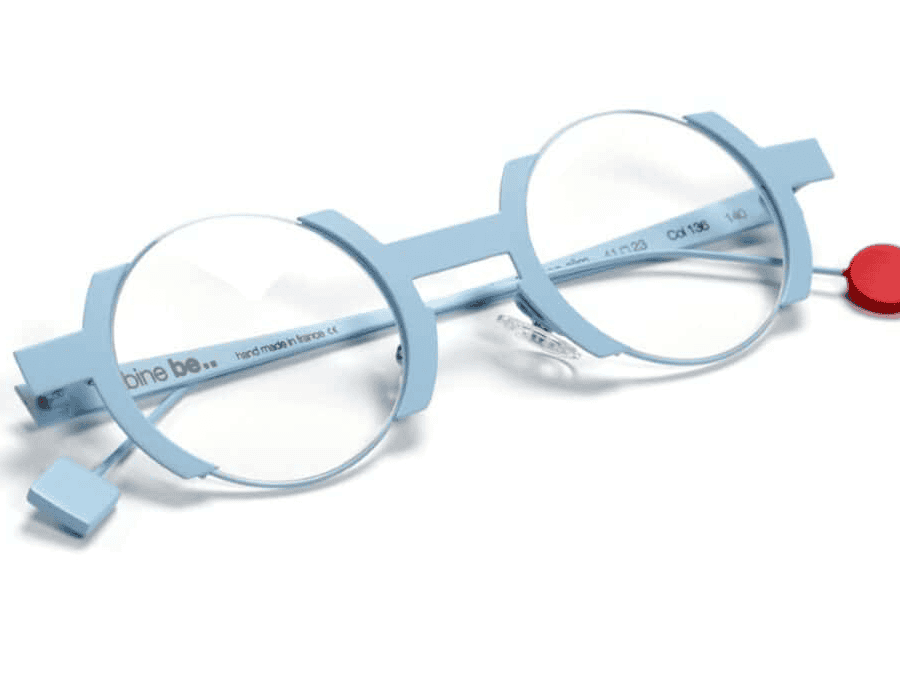Why Is It Important to Have Glasses That Fit Properly?
Having glasses that fit properly is essential for not only your comfort, but having clear vision and the correct alignment of your lenses. Poorly fitting glasses can cause discomfort like headaches, sore spots on your nose or ears, and distorted vision if the lenses aren’t positioned accurately. A well-fitting pair of glasses will stay securely on your face, align with your eyes to provide optimal vision, and be comfortable enough to wear throughout the day.
What Is PD, and Why Does It Matter?
Pupillary Distance (PD) is the distance between the centers of your pupils in millimeters. This measurement is crucial for ensuring that your lenses are correctly aligned with your eyes. If the PD is not accurate, the center of the lenses won’t match up with your line of sight, which can lead to eye strain, discomfort, and blurry vision.
PD is particularly important when getting new glasses, as it directly affects how well your lenses correct your vision. An incorrect PD can significantly reduce the effectiveness of your prescription. If you are unsure of your PD, an optician can take the measurement for you, ensuring that your lenses are centered properly. Frames also have an optimal PD and matching your PD to your frames becomes important for the thickness of your lenses if you have a stronger prescription. Learn more about the importance of having an accurate PD.
How Should Glasses Sit on Your Nose?
The way glasses rest on your nose impacts both comfort and proper vision. The nose pads or bridge should sit evenly on your nose without pinching or leaving red marks. If your glasses have adjustable nose pads, they can be fine-tuned to provide a better fit. For frames with a fixed bridge (often seen in plastic frames), ensure the bridge width matches your nose shape to prevent slipping or discomfort. The frames should not slide down your nose when you move your head; if they do, adjustments are necessary.
How Can You Tell if the Frame Width Is Right for You?
The width of the frame plays an important role in both comfort and appearance. Frames that are too narrow can pinch the sides of your head, while frames that are too wide may not stay securely in place. To find the right frame size, look for glasses that fit the width of your face comfortably. The frames should align with the width of your head without extending too far beyond your temples or being too narrow.
Another thing to consider is the frame depth (the height of the lenses from top to bottom). The depth of the frame should be appropriate for your prescription and face shape. For instance, if you wear multifocal lenses like progressives or bifocals, you need frames with sufficient depth to accommodate all the necessary vision zones. If the frame is too shallow, it may limit the space for near, intermediate, and distance corrections, affecting your ability to see clearly through different parts of the lens.
How Should the Temples of Your Glasses Fit?
The temples (arms) of your glasses should wrap comfortably around your ears without creating pressure. They should be long enough to reach your ears without pressing too tightly on the sides of your head. If the temples are too tight, they may cause discomfort and leave marks; if they are too loose, your glasses may slide down your face or tilt. The temples should gently curve around your ears to provide stability and prevent the frames from moving. If your glasses tilt forward or backward, adjustments can be made to the temples to achieve a more secure and comfortable fit.
How Often Should You Check the Fit of Your Glasses?
It’s a good idea to regularly check the fit of your glasses, as frames can become loose or misaligned from normal wear and tear. If you notice that your glasses are starting to slip, feel uncomfortable, or no longer provide clear vision, it is time to have them adjusted.
An optician can fine-tune the fit of your frames by adjusting the nose pads, frame bridge, and temple arms for a more secure and comfortable fit. Frequent adjustments may be necessary over time as frames can loosen or become misaligned with regular use. A well-adjusted pair of glasses will stay securely on your face and provide clear vision without causing discomfort.
Can the Fit of Your Glasses Affect Your Vision?
Yes, the fit of your glasses can significantly impact your vision. If the lenses are not aligned properly with your pupils, they may cause distorted or blurry vision, as well as eye strain and discomfort. This is particularly important for multifocal lenses, where the placement of each vision zone is essential for clear vision at various distances.
Even single-vision lenses need proper alignment to provide clear sight with higher prescriptions. If your frames do not fit well or are misaligned, the light passing through your lenses may not reach your eyes correctly, affecting how well you see.
If your glasses are causing discomfort, whether it’s from pressure on your ears, nose, or temples, or if they are slipping frequently, it’s time to get them adjusted. Discomfort can prevent you from wearing your glasses as often as you need to, affecting your vision. An optician can make precise adjustments to improve the fit and comfort of your frames.
Discover independent eyewear with Project Spex. Every Friday, we deliver the latest in collectible eyewear and your favorite independent designers.
Sign up now and never miss a thing!
About The Author:

Will Benjamin is an advocate for independent eyewear and one of the driving forces behind Project Spex. With a passion for unique, collectible, and limited-edition eyewear, Will aims to inspire people to build their own collections through Project Spex, while supporting the success of independent opticals.


